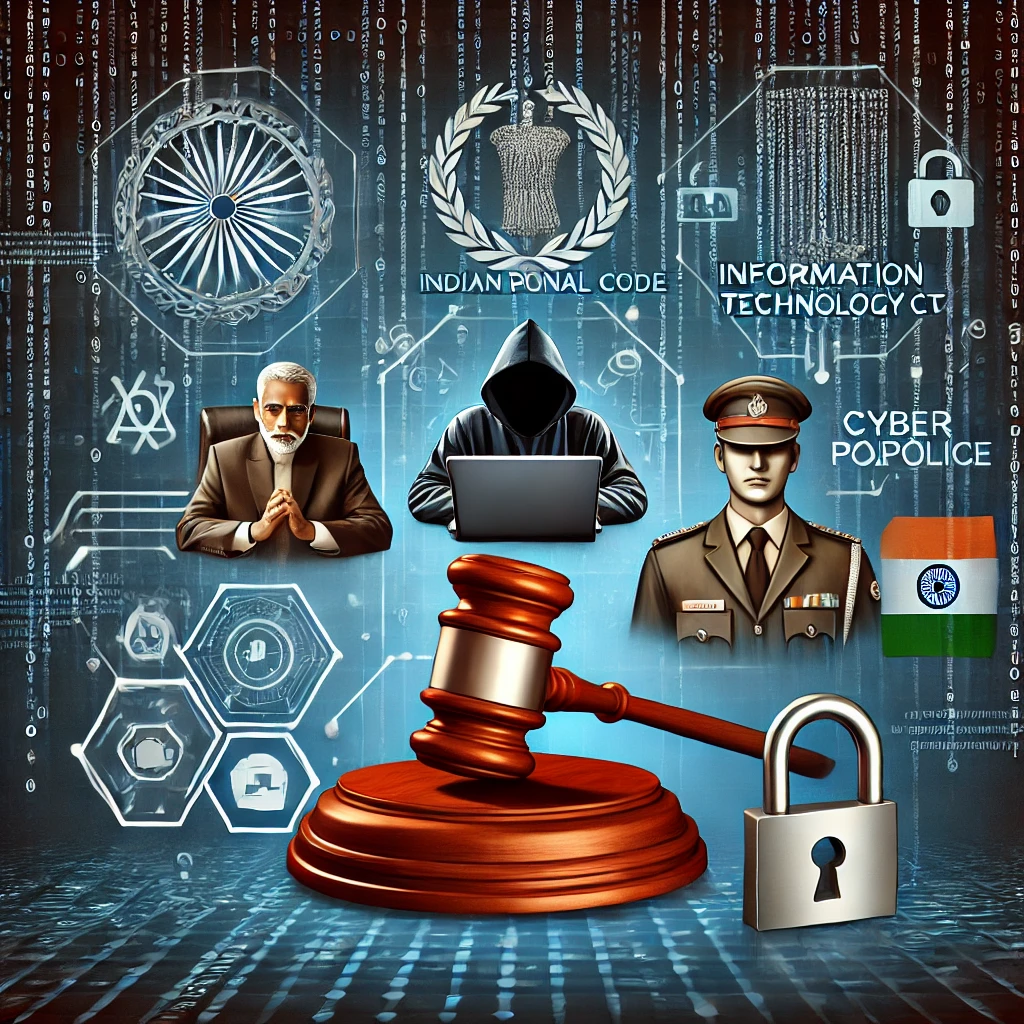In an increasingly digital world, the rise of cyber crimes has become a significant concern. From financial fraud and identity theft to cyberbullying and data breaches, individuals and businesses are at constant risk of falling victim to malicious online activities. Understanding your legal rights and the remedies available under Indian law is crucial for safeguarding yourself against cyber threats.
At Patrons Legal, our experienced team of cyber crime lawyers in Delhi is committed to protecting your digital rights. We provide comprehensive legal assistance to individuals and organizations facing cyber threats, ensuring justice is served. This blog will help you gain a clear understanding of cybercrime laws in India, your legal rights, and the steps you can take if you become a victim.
Stay informed and empowered with the right legal knowledge to navigate the complexities of cyber law effectively. Read on to learn more about the types of cyber crimes, relevant legal provisions, and how Patrons Legal can assist you in seeking legal recourse.
Understanding Cyber Crimes in India
Cybercrime refers to unlawful activities conducted using computers, digital devices, or networks. These crimes can range from data theft and online fraud to cyberbullying and hacking. Indian laws provide stringent measures to combat such offenses and protect victims. Understanding the legal landscape surrounding cyber crimes in India is crucial for protecting yourself and seeking justice when necessary.
At Patrons Legal, we are committed to providing expert legal counsel to individuals and organizations facing cybercrime issues. With a deep understanding of the Information Technology (IT) Act, the Indian Penal Code (IPC), and other relevant laws, our experienced legal professionals offer comprehensive solutions to navigate complex cybercrime cases.
Types of Cyber Crimes in India
With the growing use of digital platforms, cyber crimes have become a major concern in India. From financial fraud to identity theft, cybercriminals employ various tactics to exploit vulnerabilities. Understanding the different types of cyber crimes can help individuals and organizations protect themselves effectively.
1. Cyber Stalking
Cyber stalking involves the repeated use of digital platforms to harass, intimidate, or threaten individuals. It can occur through social media, emails, or messaging apps, often leading to emotional distress for the victim.
2. Hacking
Hacking refers to unauthorized access to a computer system, network, or data. Hackers often exploit security vulnerabilities to steal sensitive information or disrupt services.
3. Phishing
Phishing is a form of cyber fraud where attackers impersonate legitimate organizations to trick individuals into revealing personal or financial information through fake emails, messages, or websites.
4. Identity Theft
In identity theft, cybercriminals steal personal information like Aadhaar details, PAN numbers, or bank account information to commit fraud or access financial services.
5. Cyber Bullying
Cyber bullying involves using digital platforms to intimidate, harass, or humiliate others, particularly minors. It is a growing concern in schools and colleges.
6. Online Financial Fraud
Cybercriminals often conduct financial frauds such as credit card scams, digital payment frauds, and online banking scams to steal money from victims.
7. Cyber Terrorism
Cyber terrorism involves the use of digital tools to threaten national security, disrupt critical infrastructure, or spread fear and propaganda.
8. Data Theft
Data theft refers to the illegal copying or extraction of personal or organizational data. Companies dealing with sensitive customer data are particularly vulnerable.
9. Child Pornography and Online Exploitation
Creating, sharing, or accessing child sexual abuse material (CSAM) is a severe cybercrime punishable under the IT Act and POCSO Act in India.
10. Ransomware Attacks
In a ransomware attack, hackers encrypt data and demand a ransom to restore access. Such attacks can cripple organizations by blocking critical data and systems.
Key Cyber Crime Laws in India
India has established robust legal frameworks to address cyber crimes, primarily through the following laws:
- Information Technology Act, 2000 (IT Act)
- The primary legislation governing cyber crimes in India.
- Covers offenses like hacking, identity theft, data breaches, and cyber-terrorism.
- Provides legal recognition to electronic records and digital signatures.
- Indian Penal Code (IPC), 1860
- Sections 378, 406, 420, and 499 of the IPC address cyber fraud, theft, cheating, and defamation.
- The Copyright Act, 1957
- Protects against copyright infringement of digital content and software piracy.
- The Companies Act, 2013
- Enforces regulations on cyber security compliance for companies.
Your Legal Rights as a Victim of Cyber Crime
If you become a victim of cybercrime, knowing your legal rights is crucial. Here is what you can do:
- File a Complaint:
- Report the crime to the nearest cyber crime police station or file an online complaint via the Cyber Crime Reporting Portal (www.cybercrime.gov.in).
- Preserve Evidence:
- Take screenshots, save emails, messages, and transaction records.
- Seek Legal Assistance:
- Consult with legal experts like Patrons Legal to understand your rights and pursue legal action.
How Patrons Legal Can Help
At Patrons Legal, our experienced team of criminal defense lawyers and cyber law experts offer comprehensive legal support. Our services include:
- Legal Consultation: Understanding your case and advising on the best legal course.
- Filing Complaints: Assisting in drafting and filing complaints with cyber crime cells.
- Representation in Court: Representing clients in District Courts, High Courts, and the Supreme Court.
- Negotiation and Mediation: Resolving cases through mediation where applicable.
- Data Protection and Compliance: Assisting businesses in maintaining compliance with cyber security regulations.
Preventive Measures to Stay Safe Online
While laws provide protection, it is always best to prevent cyber crimes. Follow these tips to enhance your digital security:
- Use strong passwords and enable two-factor authentication.
- Avoid sharing personal information online.
- Verify emails and messages before clicking on links.
- Regularly update software and security patches.
- Monitor your financial accounts for suspicious activities.
Conclusion
Cybercrime laws in India are designed to protect individuals and businesses from digital threats. With the right legal guidance from Patrons Legal, you can navigate the complexities of cyber law effectively. If you or someone you know has been a victim of cybercrime, don’t hesitate to seek legal help. Contact us today for expert assistance and ensure your digital rights are protected.








Leave a Reply